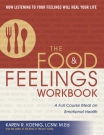 Overcoming eating disorders includes love, smiles and encouragement.
Overcoming eating disorders includes love, smiles and encouragement.
Smiles of encouragement are essential in building self-respect, self-worth and self-confidence. Eating disorder thinking sets up a cascade of self-doubts, insecurities and anxieties. You feel worthless despite what others may say to support you.
You know in your heart that you have tricked others into believing you are competent, confident and have value. You need compliments, so you know your false facade of worth is intact while you feel worthless to yourself.




 People living with troubling eating patterns are all individuals with different vulnerabilities and strengths. You may need to hear many voices speaking to healing and recovery before you hear the voice that touches you and awakens you to your eating disorder recovery path.
People living with troubling eating patterns are all individuals with different vulnerabilities and strengths. You may need to hear many voices speaking to healing and recovery before you hear the voice that touches you and awakens you to your eating disorder recovery path.